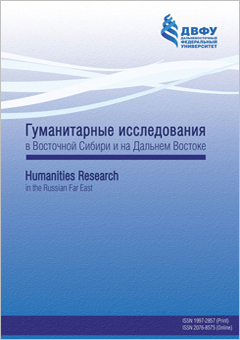Когнитивные нарушения, искажения и логические ошибки: эпистемологический анализ
DOI:
https://doi.org/10.24866/1997-2857/2025-2/99-107Ключевые слова:
когнитивные нарушения, когнитивные искажения, логические ошибки, эпистемология, адаптивная рациональность, аргументация, эвристикиАннотация
В статье с точки зрения эпистемологического анализа рассматривается проблема разграничения понятий «когнитивные нарушения», «когнитивные искажения» и «логические ошибки». Автор подчеркивает их различное происхождение, природу и контекст для процессов познания. Когнитивные нарушения связаны с дезадаптивными убеждениями и, как следствие, с наличием психических нарушений, когнитивные искажения – с эвристиками в условиях неопределенности, а логические ошибки – с нарушением правил аргументации. На основе работ ван Ламбалгена и Стеннинга подтверждается тезис о том, что эпистемологический анализ когнитивных процессов требует учета не только логической структуры аргументов, но и контекстуальных и когнитивных факторов
Скачивания
Библиографические ссылки
1. Боброва А.С., Драгалина-Черная Е.Г. «Контрпримеры» к modus ponens: логическая корректность и эпистемическая рациональность // Эпистемология и философия науки. 2024. Т. 61. № 4. С. 117–128. = Bobrova, A.S. and Dragalina-Chernaya, E.G., Kontrprimery k modus ponens: logicheskaya korrektnost’ i epistemicheskaya ratsionalnost’ [‘Counterexamples’ to modus ponens: logical correctness and epistemic rationality], Epistemologiya i filosofiya nauki, Vol. 61, no. 4, pp. 117–128. (in Russ.)
2. Боброва А.С., Петровская А.В. Новая модульность. Логика и рассуждения // Логико-философские штудии. 2020. Т. 18. № 4. С. 45–60. = Bobrova, A.S. and Petrovskaya, A.V., 2020. Novaya modul’nost’. Logika i rassuzhdeniya [New modularity. Logic and reasoning], Logiko-filosofskie shtudii, Vol. 18, no. 4, pp. 45–60. (in Russ.)
3. Драгалина-Черная Е.Г. Логика как формальная философия и искусство концептуального дизайна // Вопросы философии. 2022. № 5. С. 5–18. = Dragalina-Chernaya, E.G., 2022. Logika kak formal’naya filosofiya i iskusstvo kontseptual’nogo dizaina [Logic as formal philosophy and the art of conceptual design], Voprosy filosofii, no. 5, pp. 5–18. (in Russ.)
4. Зайцев Д.В. Почему большие языковые модели не (всегда) рассуждают как люди? // Логика и теория аргументации. 2024. № 1. С. 76–93. = Zaitsev, D.V., 2024. Pochemu bol’shie yazykovye modeli ne (vsegda) rassuzhdayut kak liudi? [Why large language models do not (always) reason like humans?], Logika i teoriya argumentatsii, no. 1, pp. 76–93. (in Russ.)
5. Abd-Eldayem, R.M.A., 2023. The relationship between cognitive bias and logical fallacies in Egyptian society. British Journal of Psychology Research, Vol. 11, no. 3, pp. 52–76.
6. Beck, A.T., 1976. Cognitive therapy and the emotional disorders. New York: International Universities Press.
7. Beck, A.T. et al., 1979. Cognitive therapy of depression. New York: Guilford Press.
8. Burns, D.D. and Eidelson, R.J., 1998. Why are depression and anxiety correlated? A test of the tripartite model. Journal of Consulting and Clinical Psychology, Vol. 66, no. 3, pp. 461–473.
9. Eemeren, F.H., Garssen, B. and Meuffels, B., 2009. Fallacies and judgments of reasonableness: Empirical research concerning the pragma-dialectical discussion rules. Dordrecht: Springer.
10. Englich, B., Mussweiler, T. and Strack, F., 2006. Playing dice with criminal sentences: the influence of irrelevant anchors on experts’ judicial decision-making. Personality and Social Psychology Bulletin, Vol. 32, no. 2, pp. 188–200.
11. Epstein, S., 1994. Integration of the cognitive and the psychodynamic unconscious. American Psychologist, Vol. 49, no. 8, pp. 709–724.
12. Floridi, L., 2009. Logical fallacies as informational shortcuts. Synthese, Vol. 167, no. 2, pp. 317–325.
13. Kahneman, D., 2011. Thinking, fast and slow. New York: Farrar, Straus and Giroux.
14. Kahneman, D. and Tversky, A., 1974. Judgment under uncertainty: heuristics and biases. Science, Vol. 185, no. 4157, pp. 1124–1131.
15. Kahneman, D. and Tversky, A., 1979. Prospect theory: An analysis of decision under risk. Econometrica, Vol. 47, no. 2, pp. 263–291.
16. Lord, C.G., Ross, L. and Lepper, M.R., 1979. Biased assimilation and attitude polarization: The effects of prior theories on subsequently considered evidence. Journal of Personality and Social Psychology, Vol. 37, no. 11, pp. 2098–2109.
17. Nickerson, R.S., 1998. Confirmation bias: A ubiquitous phenomenon in many guises. Review of General Psychology, Vol. 2, no. 2, pp. 175–220.
18. Sullivan, M.J.L., Bishop, S.R. and Pivik, J., 2001. The pain catastrophizing scale: Development and validation. Psychological Assessment, Vol. 13, no. 4, pp. 529–543.
19. Urbánski, M., 2020. Formal modeling of human reasoning: errors, limitations and Baconian bees. Logical Investigations, Vol. 26, no. 2, pp. 106–115.
20. van Benthem, J., 2008. Logic and reasoning: do the facts matter? Studia Logica, Vol. 88, no. 1, pp. 67–84.
21. van Lambalgen, M. and Stenning, K., 2008. Human reasoning and cognitive science. Cambridge: MIT Press.
22. Wason, P.C., 1966. Reasoning. In: Foss, B.M. ed., 1966. New horizons in psychology. Harmondsworth: Penguin Books, pp. 135–151.
Загрузки
Опубликован
Выпуск
Раздел
Лицензия
Copyright (c) 2025 Виктория Геннадьевна ДЕНИСОВА

Это произведение доступно по лицензии Creative Commons «Attribution-NonCommercial-NoDerivatives» («Атрибуция — Некоммерческое использование — Без производных произведений») 4.0 Всемирная.














